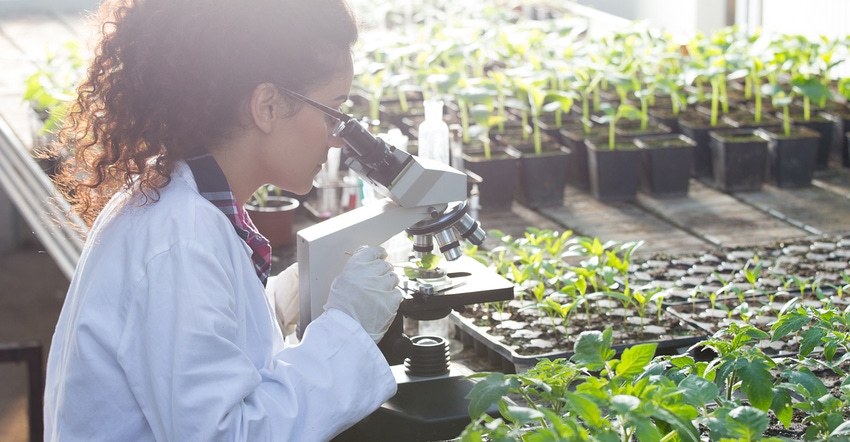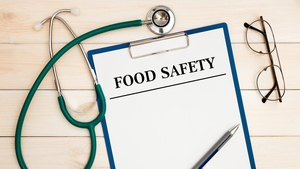The terms “non-GMO” and “organic” can be confused with each other; certification can help educate consumers.

Move over “GMO,” “bioengineered” is taking your spot. On Jan. 1, 2020, the implementation of the National Bioengineered Food Disclosure Standard (NBFDS) started with the mandatory compliance date set for Jan. 1, 2022.
Although the terms “genetically modified” and “bioengineered” are synonymous, “food that contains genetic material that has been modified through in vitro recombinant deoxyribonucleic acid (DNA) techniques; and for which the modification could not otherwise be obtained through conventional breeding or found in nature” will officially be labeled as bioengineered by USDA. This also applies to products that contain at least 5% bioengineered ingredients(s).
Currently, USDA’s bioengineered crops and foods list contains 13 items: alfalfa, canola, corn, cotton, potato, salmon (AquAdvantage), soybean, squash, sugar beet and certain varieties of apple, eggplant, papaya and pineapple. However, certain products made from these 13 items do not require labeling. There are many points of contention when it comes to the NBFDS, but this is one of the biggest.
Highly refined ingredients such as oils and sugars from GMO crops are exempted from the bioengineered label. According to USDA, “based on the available scientific evidence, refined beet and cane sugar, high fructose corn syrup, degummed refined vegetable oils and various other refined ingredients are unlikely to require BE food disclosure because the conditions of processing serve effectively to degrade or eliminate the DNA that was initially present in the raw agricultural commodity" and “no disclosure is required if the food does not contain detectable modified genetic material.” However, there is a caveat to this exemption: Brands can choose to voluntarily disclose their product is “derived from bioengineering.”
While full transparency is always admirable, some argue this voluntary system for highly refined ingredients will cause consumer confusion. For instance, if Sugar Brand A and Sugar Brand B both received their raw material from Old McDonald’s farm of genetically modified sugar beets and only Sugar Brand A voluntarily placed a “derived from bioengineering” label on their package, consumers who are not up to speed with the nitty-gritty of the NBFDS would not know that Sugar Brand B chose not to disclose it. It would be safe to assume many consumers would believe Sugar Brand B’s products were made from non-bioengineered sugar beets, when that is not the case.
One path consumers can take (and many are) is to purchase certified organic products. An organic product means it is not bioengineered, since in order for a product to be organic, it cannot be genetically modified. The NBFDS even states they are exempt: “This exemption is intended to cover all NOP certified label categories (‘100% Organic,’ ‘Organic,’ and ‘Made with Organic’) because NOP regulations clearly require that no ingredient may be bioengineered. This exemption, however, does not apply to ‘products with less than 70% organically produced ingredients’ because those products may include bioengineered ingredients along with organic ingredients.”
The impact of the NBFDS on the industry remains to be seen and will be for some time after the mandatory compliance date of Jan. 1, 2022. Right now, the best thing for brands to do is pay attention to those that start implementing it. Some of the broader picture questions include: Will sales decrease for products that are labeled bioengineered? Will it increase organic sales? Will it incentivize farmers to switch to non-bioengineered crop, or even organic crop?
The only answer I am certain of is that sales will decrease for products that are labeled bioengineered. Although there are plenty of consumers that do not mind, or even support, GMOs, there are plenty that do mind and even more that are lukewarm about them. Those who are lukewarm, when faced with a product labeled as bioengineered vs. not, will likely choose the latter. As for the other two questions, I am not as certain. Even without the NBFDS, I believe organic sales will keep increasing like they have been since the 1990s. Beyond non-GMO, organic was already seen as the healthier, safer alternative to consumers. Today, consumers not only care about the ingredients and number of ingredients, they also care about where the ingredients come from and how they are produced. It is not just about their wellness, but also the wellness of animals, the environment and those involved in the supply chain.
These are the essences of organic. Organic not only refers to the ingredients themselves, but also the manner in which they are produced, processed and handled. Organic foods are not only free from GMOs, but also antibiotics, artificial ingredients and pesticides. Organic certification gives consumers a guarantee that otherwise might be lost in the labeling, like bioengineered, and the nuances of it all.
Rikka Cornelia is the product manager for Martin Bauer. Rikka has a Bachelors in Economics from the University of California, Irvine.
About the Author(s)
You May Also Like






